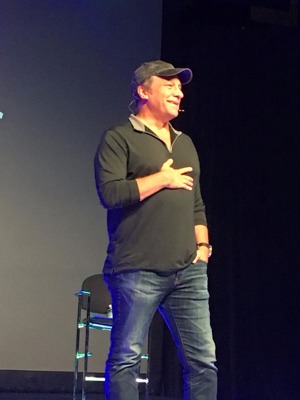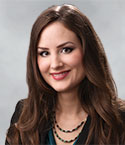Schneider Electric Innovation Summit '17: Mike Rowe promotes embracing discomfort through change at Summit
By Adrienne Blume, Executive Editor
On Day 1 of Schneider Electric's Innovation Summit: Software Conference in San Antonio, Texas, keynote speaker Mike Rowe—who is known for his role as the host of the Discovery Channel show Dirty Jobs—spoke about embracing the discomfort that comes with necessary change in work processes.
During its run, Dirty Jobs visited workers in each state in the US to capture an "unscripted, unrehearsed look at work as it exists." In his keynote speech, Mr. Rowe used the story of his founding of the idea for Dirty Jobs to illustrate how disruptive, transformative change can help advance work processes and professional growth.
In 1991, Mr. Rowe was working in San Francisco as host of the CBS show Evening Magazine. The show would visit restaurants, wineries, and similar venues in and around San Francisco to showcase their offerings. Mr. Rowe was inspired by his grandfather's "handy gene" to expand the scope of the show. He wanted to try something different from the Evening Magazine norm, and decided to host the show from the last place his audience would expect—the inside of a sewer.
Mr. Rowe and his camera operator, Branson, met sewer inspector Gene Cruz at an open manhole in the middle of San Francisco to film the episode. Mr. Cruz's job as a sewer inspector involved inspecting bricks for rot and replacing them with new ones. "He's basically a mason in hell," Mr. Rowe quipped.
After outfitting themselves in rubber suits, Mr. Rowe and his camera operator followed Mr. Cruz into the sewer. "Everything you can imagine is in the sewers of San Francisco, and it's all flowing toward you in a wave with the topography of what's above," he said. This included undulating masses of giant cockroaches crawling along the sewer walls, a piece of information that caused many in the conference audience to gasp.
Mr. Rowe shared horrifying and humorous anecdotes about his three failed attempts to record a slick intro for the program. His first recording was botched when a lateral in the wall behind him ejected sewage onto himself and his cameraman. The second filming attempt was derailed by the appearance of a large rat on Mr. Rowe's shoulder, which subsequently climbed down into his boot and caused him to slip, face-forward, into the muck.
Mr. Cruz—whose advice to Mr. Rowe at the outset of the expedition was, "When you're down here, it's best to keep your mouth shut"—turned to Mr. Rowe after the rat had scampered off and joked, "When you're done screwing around with the local wildlife, why don't you come over here and help me."
Mr. Rowe went to assist Mr. Cruz in hammering out some of the rotting bricks and in mixing the replacement mortar. As the camera rolled, they discussed Mr. Cruz's job and gathered more footage for the program segment. The recording was again cut short when the alarms on the three men's methane detectors began to go off, which prompted them to quickly vacate the sewer.
Later, as he was reviewing the day's footage, Mr. Rowe realized that his humbling and uncomfortable experience in the sewer had been a personally and professionally transformative one. It would change the course of his TV career and also the way he viewed himself as a TV host. He said he admired Mr. Cruz's career progression from an engineer with multiple degrees to working in sewers as an inspector—a dangerous and essential job that brought little recognition or glory. Mr. Rowe decided that he would rather be a guest, learning from others like he did from Mr. Cruz, than a host.
After the Evening Magazine episode aired, CBS received approximately 2,000 letters regarding the segment. Many who wrote disapproved of the show's thematic change, but many others commended Mr. Rowe for the segment's originality and invited him to meet their families and friends who also worked in "dirty" jobs.
Mr. Rowe parted ways with CBS, and shopped his sewage demo tape and "dirty jobs" idea—which he called "Someone's Got To Do It"—around to different networks. Discovery Channel decided to pick up Dirty Jobs in 2003. It became an instant success. Mr. Rowe said his real education began on Dirty Jobs, interviewing "the men and women who make civilized life possible for the rest of us."
The story of how Dirty Jobs came to be underlines Mr. Rowe's opening statements about embracing discomfort and disruption to bring about innovative, transformative changes in the way we work—something that Schneider Electric is enabling industries to do with the help of its innovative software products.
"We have to do something different as we celebrate work," Mr. Rowe said, in closing. "We need to identify the uncomfortable thing and try it, and then learn how to enjoy it. This is how the geniuses operate."
The Author
Related News
- Michelin, IFPEN and Axens announce successful progress in BioButterfly™ R&D project to produce biobased butadiene from bioethanol
- SK Energy secures in-house access to feedstock to create Korea's first vertical integration for waste plastics recycling
- ProSep to supply annular injection mixers technology to Saudi Arabian plant








Comments